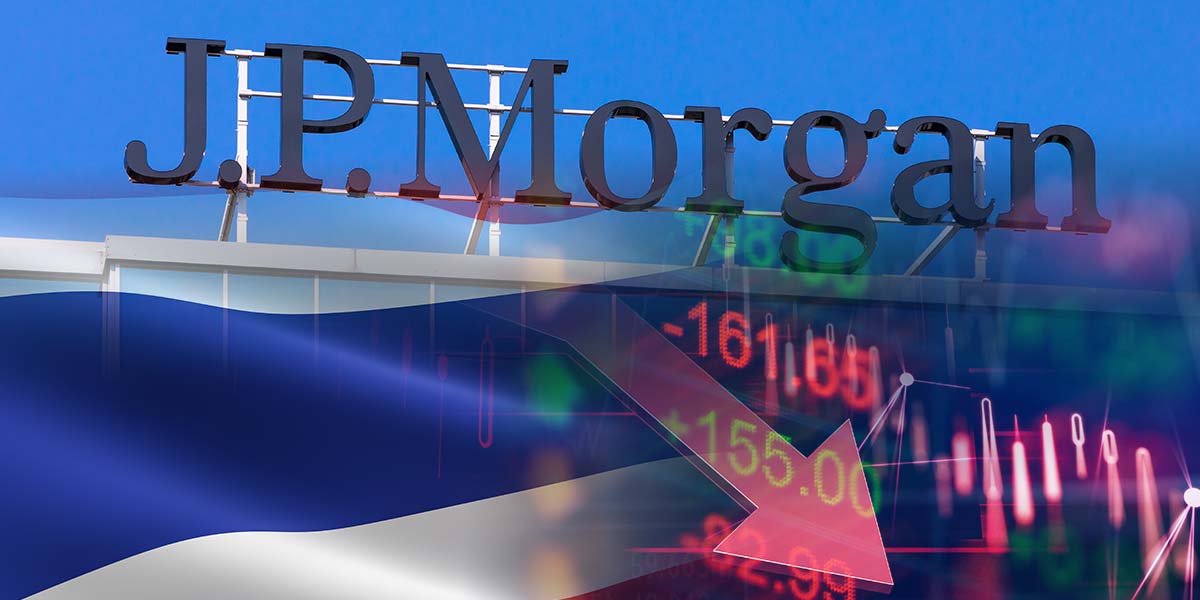In the latest analysis on the Thai stock market, J.P. Morgan maintains a cautious view on Thai equities. This stance persists despite a recent short relief rally that followed a 90-day pause in reciprocal tariffs between the U.S. and Thailand. The core reason for this cautious outlook is a highly challenging macro environment, which J.P. Morgan anticipates will lead to downward earnings revisions and multiple compressions in the near term.
Several factors contribute to this difficult environment. Notably, on April 2nd, the U.S. announced a 36% reciprocal tariff on Thailand. This tariff rate is highlighted as the second-highest within ASEAN-6 and is expected to have a significant negative impact on Thailand’s manufacturing sector, with likely spillover effects on the broader economy.
In response to this negative outlook, J.P. Morgan economists have lowered Thailand’s 2025 GDP growth forecast to 1%. While the 90-day temporary pause on these tariffs has offered some relief, J.P. Morgan believes the macro environment remains significantly challenging for Thai equities due to disrupted global business confidence dragging on external demand, low investor confidence, and the potential spillover effect on domestic demand.
The direction of the market over the next 2–3 months is seen as being dictated by U.S. trade policy changes and the outcome of US–Thailand trade negotiations. Negotiations are currently being scheduled, with the US asking Thailand to review important issues.
These challenging conditions are expected to weigh on corporate earnings. J.P. Morgan anticipates that Thailand’s EPS growth could undershoot consensus expectations for 2025, which currently stand at around 11%. This potential undershoot is primarily driven by a sharp slowdown in external demand and its spillover impact on personal income and business sentiment. Additionally, weakness in commodity demand and significant uncertainties are expected to weigh on the earnings of oil & gas stocks, which constitute a large part of Thai equities.
Reflecting this negative outlook and heightened uncertainties, J.P. Morgan has lowered their SET/MSCI TH index targets. The new targets are 1,200 for the SET Index and 410 for the MSCI TH Index, revised down from previous targets of 1,500 and 500, respectively.
J.P. Morgan indicates that the bear or bull case scenario for the market mainly depends on the outcome of US–Thailand negotiations and broader global trade policy changes over the coming months.
In this environment of uncertainty, J.P. Morgan reiterates a preference for stocks and sectors with resilient earnings and limited exposure to global demand. The favoured sectors include:
- Telecom: ADVANCE and TRUE
- Healthcare: BDMS
- Selective staples: CPALL
- Banks: KTB and TIDLOR
- Utilities: GULF
The uncertainty surrounding trade, resulting from retaliatory actions between the U.S. and China, could potentially lead to a “gray swan” event. Such an event could upend the growth outlook and capital markets, resulting in a sharp repricing of equities. While the probability of a severe bear-case scenario, like a U.S. slowdown or recession, is considered to have slightly declined with the temporary tariff pause, the latest sentiment data continue to flag concerns.
Historically, sectors such as industrials, telecom, staples, and utilities in Thailand have tended to outperform during such scenarios. However, J.P. Morgan believes that industrial and transportation stocks are more vulnerable this time, partly due to lackluster tourism inflows, which could negatively impact AOT’s outlook.





